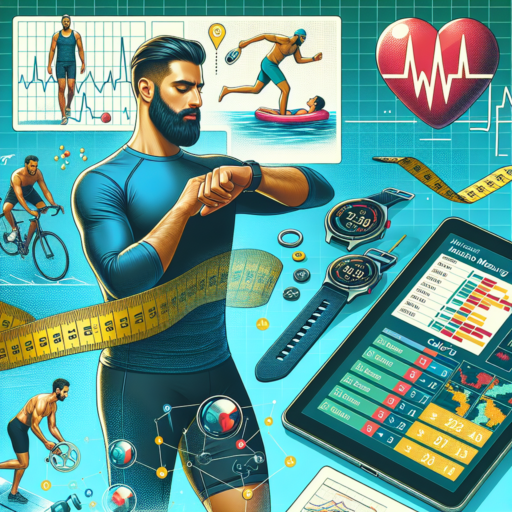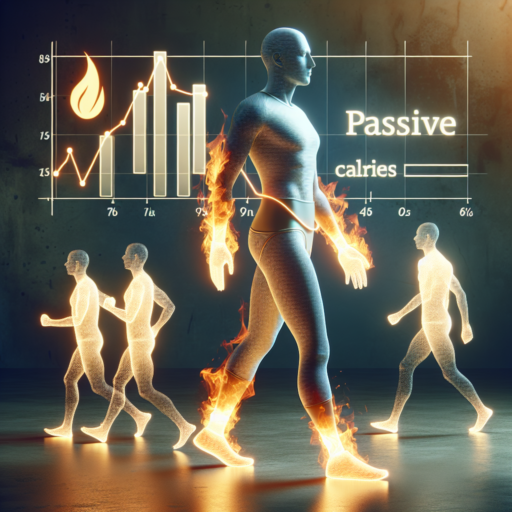What is the most accurate tracker for calories burned?
Finding the most accurate tracker for calories burned has become a crucial question for fitness enthusiasts and individuals looking to monitor their health and fitness progress closely. With the plethora of devices available on the market, identifying which one offers the highest level of accuracy can be quite challenging. The key lies in understanding the technology and algorithms behind these devices, as well as recognizing that some might be better suited for specific types of activities or fitness levels.
Much debate surrounds the accuracy of wearable devices versus stationary equipment found in gyms, such as treadmills and ellipticals. Studies suggest that wearable tech, equipped with advanced sensors and leveraging the latest in biometric technology, can provide remarkably accurate readings. These devices often use a combination of heart rate data, motion sensors, and sometimes even GPS to estimate calories burned with a significant degree of precision.
However, it’s important to note that no tracker is 100% accurate in measuring calorie expenditure. Factors such as body composition, fitness level, and the specific activity being performed can influence the accuracy. To enhance precision, many wearable tech brands encourage users to calibrate their devices and enter personal information such as weight, height, age, and gender.
How to accurately calculate calories burned?
Calculating the calories you burn during various activities is vital for managing your weight effectively and improving your fitness levels. However, accurate calculation can seem daunting due to the various factors involved. Understanding the basics of how your body expends energy can simplify this task.
Understanding Your Basal Metabolic Rate (BMR)
Your Basal Metabolic Rate (BMR) is essentially the amount of energy your body needs to perform basic functions like breathing and maintaining body temperature while at rest. Knowing your BMR is a crucial first step because it accounts for the largest portion of your total calorie expenditure. Various online calculators and formulas, such as the Harris-Benedict equation, can help you estimate your BMR with inputs like age, gender, weight, and height.
Factoring in Physical Activity
Once you have an idea of your BMR, the next step is to consider the calories burned through physical activity. This can be more complex as it varies greatly depending on the type, duration, and intensity of the activity. The MET (Metabolic Equivalent Task) value of an activity, which quantifies the energy expenditure of that activity compared to resting, can be a helpful metric. For example, running has a higher MET value than walking. Wearing a fitness tracker or using apps that log your specific activities can provide a more accurate count by taking your personal data into account.
No se han encontrado productos.
Are watches accurate for calories burned?
When it comes to tracking calories burned, many individuals turn to wearable technology for insights. Smartwatches and fitness bands are popular tools for monitoring various health metrics, including calorie expenditure. However, the accuracy of these devices in measuring calories burned can vary significantly depending on a range of factors.
Factors Influencing Accuracy
Several elements play crucial roles in determining how accurately watches can track calories burned. Primarily, the technology behind the watch, including its sensors and algorithms, impacts its precision. Watches that utilize advanced algorithms and more sensitive sensors tend to offer better estimations. User inputs such as age, weight, height, and gender also influence accuracy, as these details help the device tailor its calculations to the individual. Additionally, the type of activity being performed matters; certain watches are better at tracking specific exercises compared to others.
Comparative Accuracy Among Brands
Different brands and models of watches vary in how accurately they measure calories burned. Leading brands invest heavily in research and development to improve the precision of their devices. Wearers often find disparities in calorie counts when comparing similar activities tracked by different brands. This variation underscores the importance of choosing a watch that aligns with one’s fitness goals and preferred activities.
In utilizing watches to track calorie expenditure, users should maintain realistic expectations about the precision of these devices. While they offer valuable insights into physical activity and overall energy expenditure, the figures provided are best used as estimates rather than exact measurements. Engaging with the data to notice trends over time can be more beneficial than focusing on single readings.
What is the most accurate way to calculate daily calories?
Identifying the most accurate method to calculate daily calorie needs is crucial for anyone looking to manage their weight effectively, enhance athletic performance, or simply maintain a healthy lifestyle. While several approaches exist, utilizing the Total Daily Energy Expenditure (TDEE) calculation stands out for its comprehensive nature. This method takes into account not only your Basal Metabolic Rate (BMR)—the amount of energy expended while at rest—but also your level of physical activity, providing a more precise estimation of your daily caloric requirements.
The TDEE calculation method typically involves four components: BMR, Thermic Effect of Food (TEF), Thermic Effect of Activity (TEA), and Non-Exercise Activity Thermogenesis (NEAT). Combining these factors gives a holistic view of your energy needs. To ensure accuracy, it’s advisable to use detailed TDEE calculators, which require inputs like age, sex, weight, height, and activity level. It’s also essential to re-evaluate your caloric needs regularly, as changes in weight, age, or activity can impact your daily requirements.
Another critical aspect to consider for accurate calorie calculation is the quality of the data entered into such calculators. Precise measurements rather than estimations for weight and activity level can dramatically affect the outcome. For those seeking even greater accuracy, consulting with a nutritionist or dietitian can provide personalized insights, taking into account unique factors such as muscle mass and metabolic health that might not be fully captured by generic calculators.




